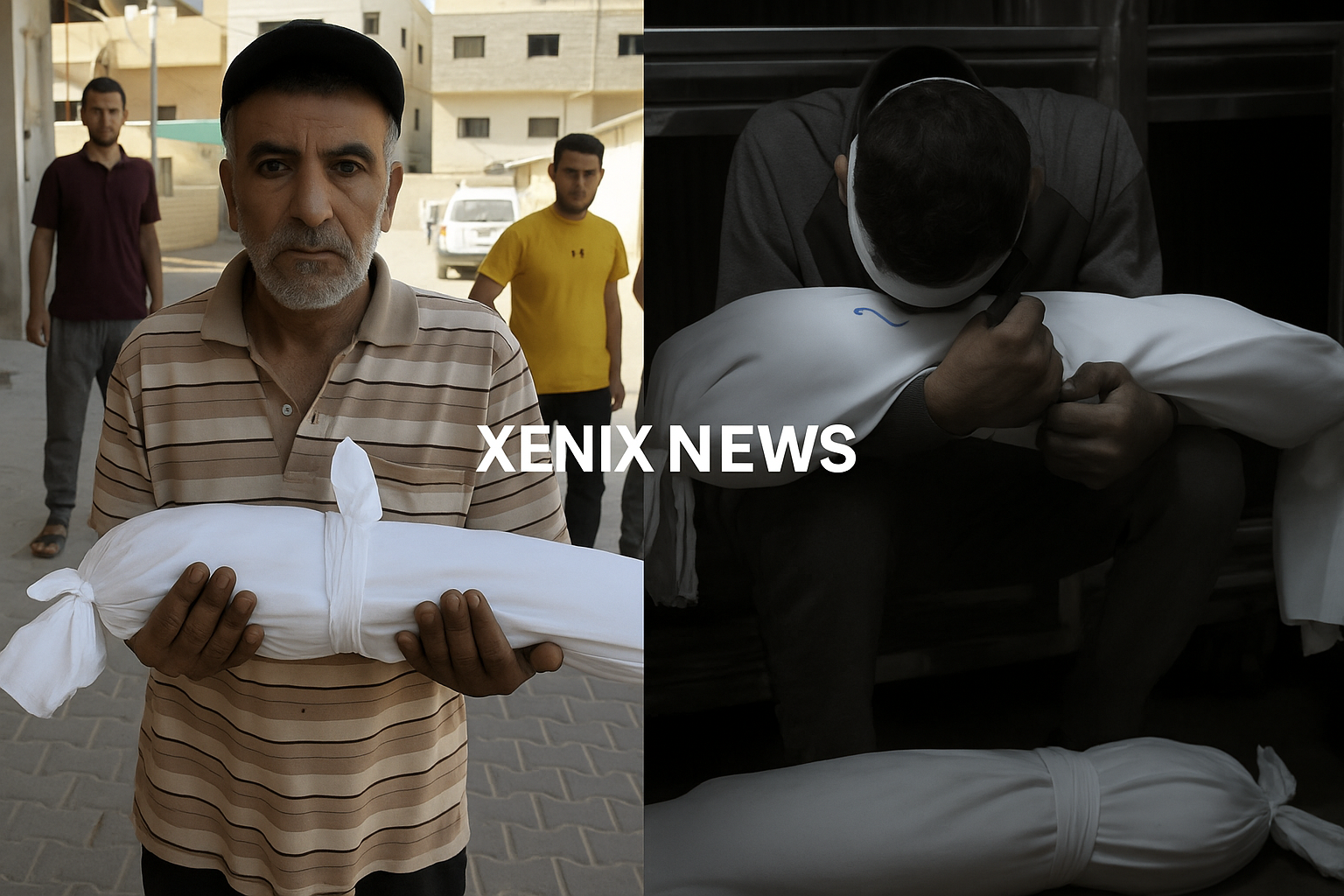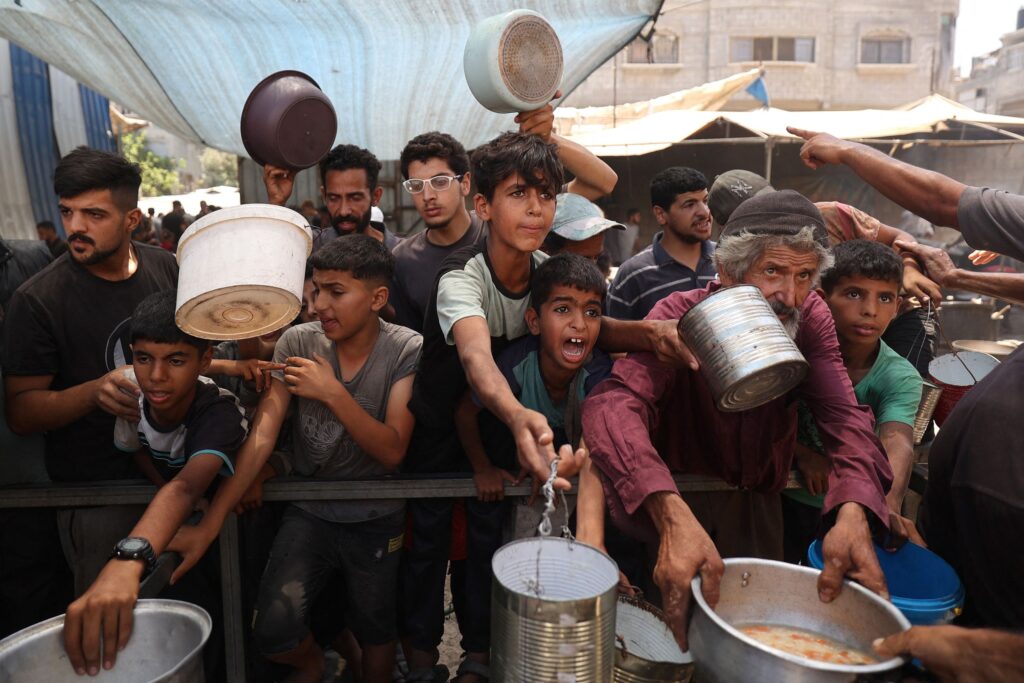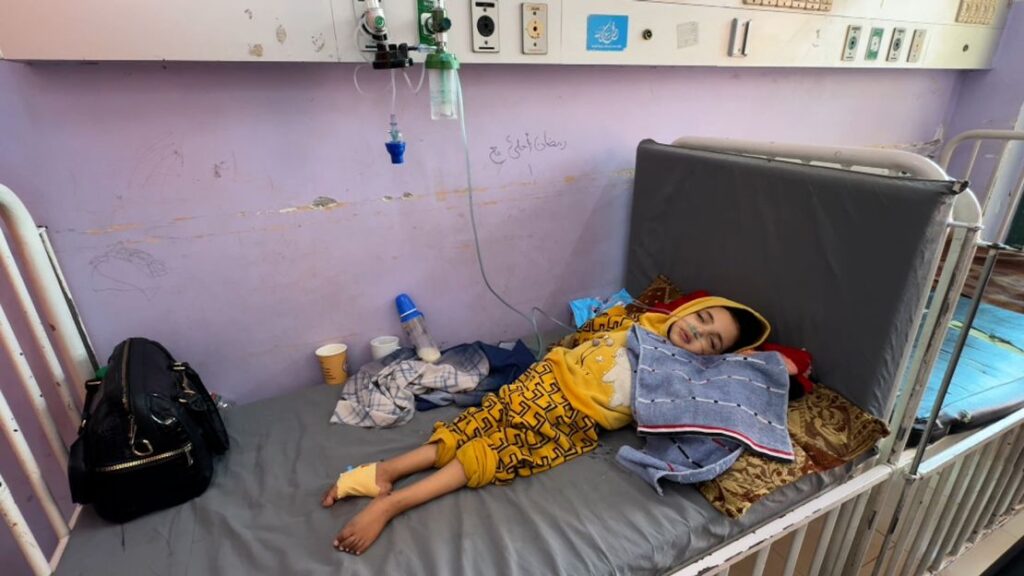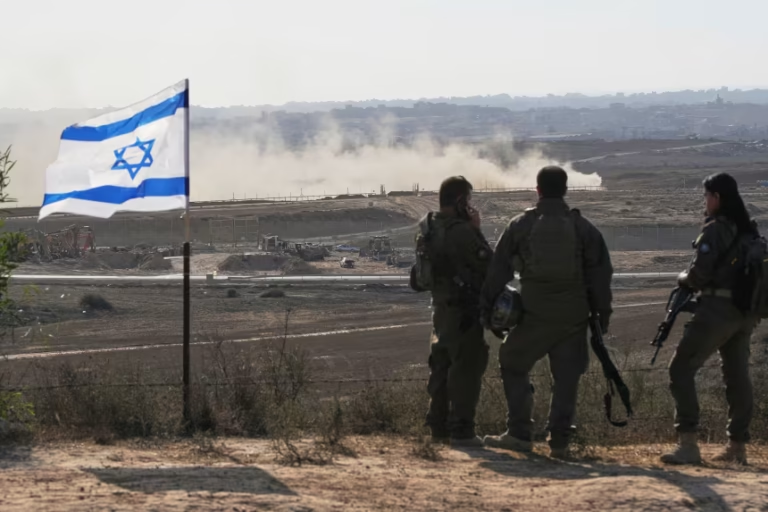
On July 20, 2025, Gaza’s Al-Aqsa Martyrs Hospital in Deir al-Balah grieved for Razan Abu Zaher, a four-year-old child who died due to extreme malnutrition.
Medical personnel verified she had been battling for her life for almost a month as hunger worsened throughout the Gaza Strip, caused by a severe Israeli blockade that startedin March and halted almost all food deliveries.
Her heartbreaking demise highlights a humanitarian crisis happening in full view.
🔒 Siege and Assistance Limitations
Beginning March 2, Israel has implemented a near-complete blockade on Gaza, closing border crossings that previously permitted vital aid, food, fuel, and medical supplies to enter. This resulted in soaring inflation—prices surged more than 1,400%—and compelled bakeries to shut down by the end of the year. Even with a minor reduction in late May, the assistance received is still critically insufficient. xenixnews

👶 A Kid’s Gradual Distress
Razan’s path started months prior to her passing. Hospital documentation indicates she was hospitalized on about June 23, already very thin and experiencing exhaustion. Her mother, Tahrir Abu Daher, revealed that formula milk was hard to find and too expensive. Even with hospital treatment, the absence of food rendered survival unattainable. Following 39 days of struggling with malnutrition, the young girl silently succumbed—not due to conflict, but hunger. xenixnews
This is far from a singular tragedy. Official health reports show that 66,000 children experience severe malnutrition in Gaza, with 10.2% of kids under five categorized as acutely malnourished in June—an increase from 5.5% in March. Daily, new patients arrive, each child exhibiting clear indicators of malnutrition: emaciated limbs, stunted growth, mental deterioration.
🕊️ Perspectives from the Ground
Witnesses describe horrifying moments: parents collapsing while waiting, children too weak to cry, families torn apart. Dr. Mohammed Abu Afash of the Medical Relief Society portrayed a troubling situation:
“We are moving towards uncertainty.” Child malnutrition has hit record highs.
At aid distribution sites, conflicts and stampedes have become fatal. According to OCHA, more than 900 individuals have died since May while attempting to obtain food. Al Jazeera states that Israeli forces shot at those seeking aid; Gaza’s Health Ministry criticizes the “hunger war.”
🙏 Worldwide Appeals for Action
The global community, comprising the UN, UNICEF, and NGOs such as Amnesty and Human Rights Watch, is raising concerns. They insist that Gaza’s borders be opened to completely allow the entry of food, fuel, and medical assistance. Without immediate action, hunger will not only claim more lives but also devastate a generation. Research indicates that malnutrition during early childhood results in lasting damage: inhibited growth, cognitive limitations, and compromised immune systems.
🧭 Actions That Need to Be Taken
Unblock Assistance: Enable lasting humanitarian routes and entry at borders.
Safeguard Civilians: Implement a truce to protect food supply lines and healthcare facilities.
Scale Support: Completely implement pre-stored food supplies and nutrition initiatives.
Sustained Recovery: Implement programs focused on food stability, infrastructure reconstruction, and child health restoration.
📝 Concluding Thoughts
Razan’s passing is not incidental—it symbolizes a famine caused by systemic factors, where policies, blockades, and conflict converge to endanger innocent lives. Her tale is a stark reminder that in Gaza, even the littlest ones are vulnerable to becoming victims of hunger. Without immediate worldwide efforts, this calamity will intensify, and additional children like Razan will die—deprived of the youth that rightfully belonged to them.



